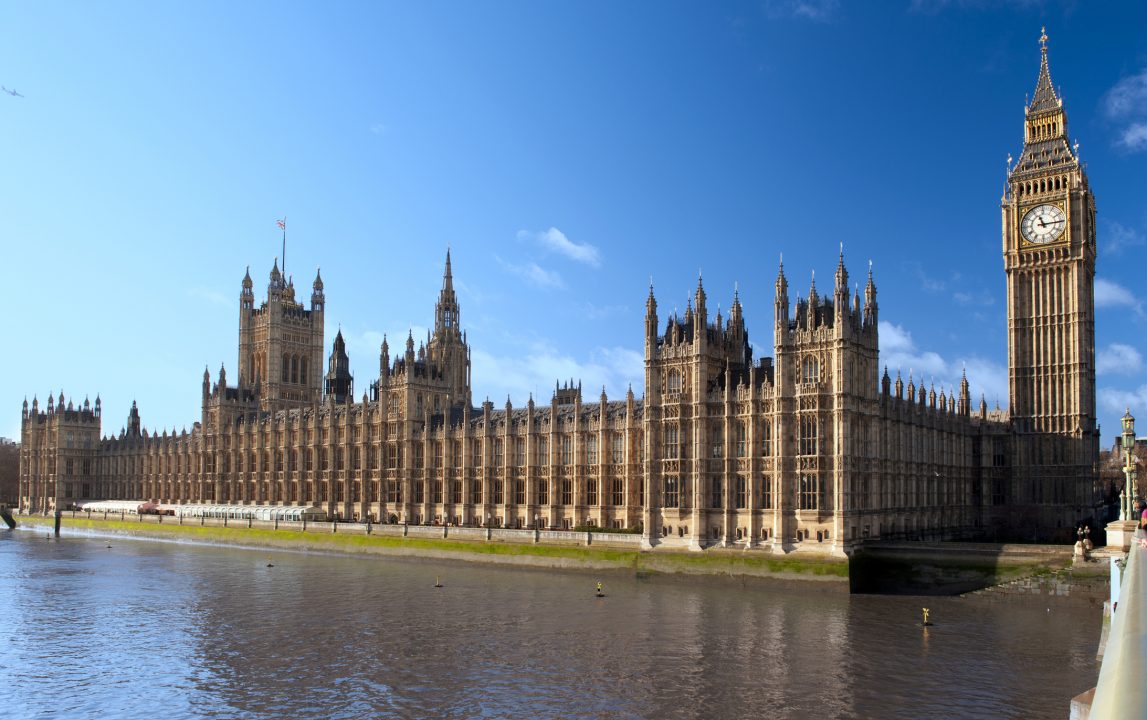Ukrainian President Volodymyr Zelensky will give a “historic address” to MPs on Tuesday by video link, it has been announced.
Commons Speaker Sir Lindsay Hoyle said he had granted the request for Zelensky to read a statement to the House of Commons at 5pm on the Russian invasion of his country.
Sir Lindsay said: “Every parliamentarian wants to hear directly from the president, who will be speaking to us live from Ukraine, so this is an important opportunity for the House.
“Thanks again to our incredible staff for working at pace to make this historic address possible.”
MPs will be able to watch the speech on screens installed overnight above either side of the chamber, House of Commons officials said.
More than 500 headsets will be made available to enable the UK’s elected representatives to hear a simultaneous translation in English.
There will be no questions at the end of the address to Zelensky, who is reportedly at risk of assassination by pro-Russian groups in Kyiv.
Reports have suggested the Ukrainian leader will call for more arms to help defend his country and renew demands for a no-fly zone to stem the Russian attack.
The UK and Nato allies have consistently ruled out policing Ukraine’s skies, with concerns it could escalate and broaden the conflict, with Vladimir Putin also declaring that any third party involvement in a no-fly zone would be read as active participation in the battle.
During diplomatic meetings on Monday, Boris Johnson agreed with allies that more defensive support needs to be given to Ukraine.
The Prime Minister met his Dutch counterpart Mark Rutte at Downing Street, with No 10 saying they agreed to “continue to support Ukraine economically, diplomatically and with defensive equipment”.
In later discussions with US President Joe Biden, French President Emmanuel Macron and German Chancellor Olaf Scholz, Johnson stressed that the “goal must be ensuring Putin’s failure in this act of aggression”, with the allies agreeing to continue to “isolate” Mr Putin, according to Downing Street.
Zelensky addressed MEPs in the European Parliament last week and on Saturday gave a virtual message to the US Senate as his country’s defence against the incursion continues.
The confirmation of the president’s address comes as Western focus turns to what more can be done to weaken Russia’s economy in a bid to force Moscow to withdraw from the conflict.
Announcing a further £175m of UK aid for Ukraine, Mr Johnson said Kyiv’s friends needed to create a “coalition” of support – humanitarian and economic, as well as militarily – to ensure Putin’s “brutal” invasion fails.
“The president of Russia is plainly doubling down,” he told a press conference in Downing Street.
“He has decided that he is going to continue with an all-out onslaught on centres of habitation in a way that we think is utterly repugnant. It’s clear that we’re going to have to do more.”
To tighten the squeeze on the Kremlin’s war chest, Johnson warned that European countries would need to secure substitute sources of energy supply if they are to ban Russian oil and gas imports.
US Secretary of State Antony Blinken said over the weekend that Washington was in “very active discussions” with European allies over energy sanctions amid calls from Zelensky for tougher action.
His comments saw gas prices surge by more than 70% to a new all-time high, while the cost of oil reached its highest level for 14 years.
But following talks in Downing Street with Rutte and Canada prime minister Justin Trudeau, the British leader called for a “step-by-step” approach as European countries weaned themselves off Russian hydrocarbons.
In the UK, he said ministers were looking at the possibility of using more oil and gas from British sources – although he insisted this did not mean abandoning its commitment to reducing carbon emissions.
“It is completely the right thing to do to move away from dependence on Russian hydrocarbons, but we have to do it step by step,” Mr Johnson told a joint news conference.
“We have got to make sure we have substitute supply. One of the things we are looking at is the possibility of using more of our own hydrocarbons.
“That doesn’t mean we are in any way abandoning our commitment to reducing CO2, but we have got to reflect the reality that there is a crunch on at the moment. We need to increase our self-reliance.”
Rutte warned that if countries moved too quickly to ban Russian oil and gas, it could backfire with “enormous consequences”, arguing that the West should be wary of generating “unmanageable risks to energy supply”, including within Ukraine.
Meanwhile, ministers were pushing a new Economic Crime Bill through the Commons on Monday in a fast-track procedure to bolster its ability to target oligarchs.
The Government has faced criticism for refusing to open its borders to Ukrainians, but Mr Johnson insisted during a press briefing on Monday that the UK would welcome those fleeing the fighting, with thousands of visa applications being processed.
The Home Office revealed that only “around 50” visas had been granted under the Ukraine Family Scheme as of 10am on Sunday. The department issued an update on Monday saying 300 visas had been confirmed and 17,700 applications made.
Labour shadow home secretary Yvette Cooper said the number of approved visas was “shockingly low” and progress was “painfully slow”.
Follow STV News on WhatsApp
Scan the QR code on your mobile device for all the latest news from around the country


 iStock
iStock

























